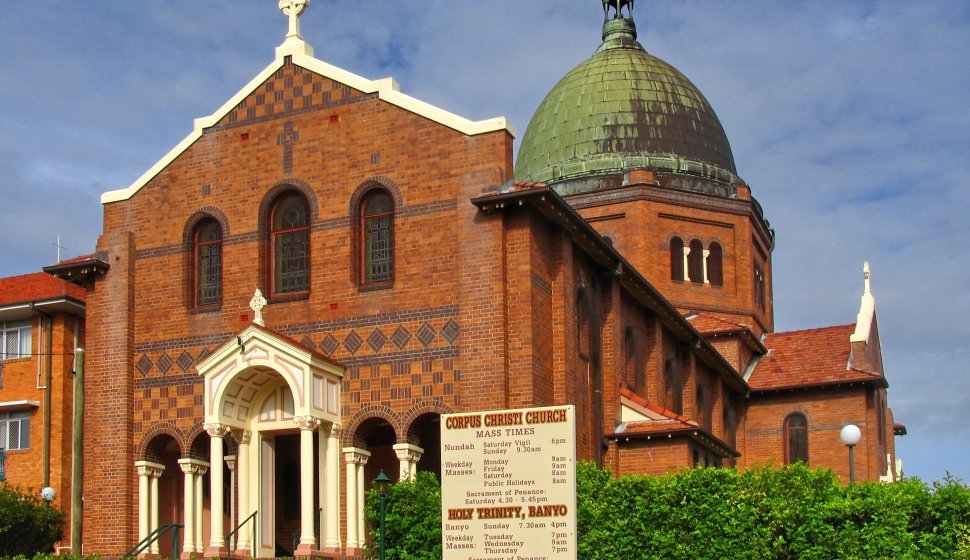- Home
- Religious Holidays
- Catholicism
- Corpus Christi

Corpus Cristi Dates in 2026, 2027 and 2028
Corpus Cristi (or Christi) is celebrated at the following dates:
- Thursday, June 4, 2026
- Thursday, May 27, 2027
- Thursday, June 15, 2028
Corpus Cristi, latin for the body of Christ, celebrates the real presence of Jesus Christ in the Eucharistic sacrement1. It is celebrated either on the Thursday after Trinity Sunday or on the Sunday after Trinity Sunday1. The purpose is to emphasize the joy of Eucharist, which is otherwise primarily observed on Maundy Thursday, which lends a more somber tone2.
Origin
The origin of Corpus Christi can be traced back to the work of Juliana of Liège in the thirteenth century2. She was orphaned at age five and raised by Augustinian Nuns2. For a long time, she desired a celebration of the Blessed Sacrament and in 1208, an apparent vision of Christ told her to plea for Corpus Cristi to be institutionalized2. For the next twenty years, this vision was repeated until she told her confessor, who relayed the message to the bishop2. Because bishops could order feasts in their dioceses at this time, in 1246 Bishop Robert ordered the feast to be held each year on the Thursday after Trinity Sunday3.
Hugh of St-Cher traveled to Liège in 1251 and found that the feast was not being observed. Upon seeing this, he reinstated the feast, which he then established for his entire jurisdiction one week later on the Octave of Trinity4. Henceforth, this feast would take place in Germany, Dacia, Bohemia, and Moravia in addition to Liège. Later, Pope Urban IV instituted the Solemnity of Corpus Cristi on the Thursday after Pentecost3. This became the first papally imposed, universal feast for the latin rite. Despite this, it was not widely celebrated until at least a half-century later, and even then only became a universal feast under Pope Clement V2. It was finally promulgated by Pope John XXII in 1317, nearly a century after its conception5.
Celebration
Today, most protestants do not celebrate Corpus Cristi. For Catholics, it is one of only five occasions where the bishop may not be away from his Diocese unless in a case of great urgency6. Parishioners sing and pray in the streets near the church on this day until the procession is over, at which point they return to the church for the Blessed Sacrament known as Eucharist7.
References
http://www.sharefaith.com/guide/Christian-Holidays/feast_of_corpus_christi.html
http://www.officeholidays.com/countries/germany/corpus_christi.php
http://idlespeculations-terryprest.blogspot.com/2010/06/cardinal-hugh-of-saint-cher-and-corpus.html
http://www.salvemariaregina.info/Reference/CorpusChristi.html
